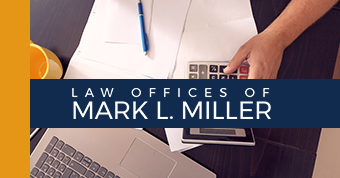Bankruptcy has the ability to eliminate certain types of taxes, which is one of the biggest reasons why bankruptcy is a sound option for many individuals who find themselves in financial difficulties.
However, before actually thinking that bankruptcy is able to discharge all taxes, it’s important to learn more about the different types of taxes, as well as look into all the ways you can dispose of taxes in bankruptcy. Take a look at this article before consulting an expert bankruptcy lawyer in San Diego.
How do people incur taxes before bankruptcy?
Taxes and tax debt can be overwhelming. However, taxes in bankruptcy can be discharged depending on the type of tax and bankruptcy. To begin with, you should be aware that people can incur tax debt in several ways:
- Claiming too many exemptions on your W2 paycheck. Sometimes people increase their claimed exemptions on their paychecks to maximize their take home pay. However, the result is less taxes withheld from paychecks. As a result, income taxes might be owed.
- Liquidating a retirement account. Retirement account funds are generally deposited without taxes taken out. Consequently, the retirement funds are taxed when withdrawn. Also, retirement withdrawals before retirement will be taxed at your applicable tax rate. What’s more, you may sometimes withdraw or liquidate these accounts prematurely which triggers a personal tax liability.
- Owning a business and not paying quarterly taxes. Frequently small business owners find themselves owing taxes. Particularly, those who do not pay ongoing quarterly taxes end up with a bill from the Internal Revenue Service at the end of the year. Then, the balance begins to rapidly increase because of penalties and interest.
How can I get rid of tax debt?
First, a skilled bankruptcy attorney should determine the tax years owed. Next, your bankruptcy attorney will confirm the date the tax returns were filed. Lastly, the attorney needs to determine the tax assessment date. All of these factors are equally important. However, this complex legal analysis requires an experienced bankruptcy attorney.
With this in mind, the best source for the above information is from your tax account transcript. You should start by requesting your tax account transcript from the Internal Revenue Service.
Your tax account transcript is available online from Internal Revenue Service’s website. Alternatively, you can request your tax account transcript by phone by calling 800-908-9946. Another option is to make your request by mail. The Internal Revenue Service requires you to verify some personal information to process your request. Then you will be able to request tax account transcripts for up to ten years.
What are the types taxes in Chapter 7 & 13 bankruptcies?
There are different types of taxes and rules concerning those taxes in both Chapter 7 and Chapter 13 bankruptcy. This can impact the manner in which you are able or unable to discharge different types of debt.
Taxes in Chapter 7
When filing for Chapter 7 bankruptcy, your tax debt may be dischargeable if it meets all of the following criteria:
- Your taxes are income taxes.
- Tax years owed are at least three years old.
- The IRS notified you that you owe the taxes at least 240 days before filing bankruptcy.
- You filed your tax returns at least two years before filing a bankruptcy petition.
Generally, tax penalties and interest will be discharged along with the original tax balance. That is, penalties and interest owed for the taxes will also be discharged in bankruptcy.
You should be able to eliminate your taxes as long as you meet the above requirements. Indeed, taxes are complex. The larger the tax balance owed, the more complicated your situation. Therefore, it is important to hire a bankruptcy attorney who understands taxes in bankruptcy.
Taxes in Chapter 13
Although you might not qualify for Chapter 7 bankruptcy, you can still discharge taxes in a Chapter 13 bankruptcy. In a Chapter 13 case you may be able to substantially reduce your tax liability. Another advantage to a Chapter 13 is that your taxes will be paid through your Chapter 13 plan. Therefore when your Chapter 13 plan is finished your tax debt will be gone and you truly get a fresh start.
Bankruptcy and tax liens
Filing for bankruptcy will not wipe out a prior tax lien. Tax liens recorded against your property still remain. To clarify, tax liens must be resolved independent of your successful bankruptcy discharge. We recommend contacting a tax professional to discuss the remaining tax lien after your bankruptcy is complete.
Which bankruptcy lawyers in San Diego can help me learn more about tax discharge through bankruptcy?
Understanding how taxes affect your bankruptcy case is important. Taxes are dischargeable in bankruptcy. However, in some situations specific tax years and/or a tax lien will still survive the bankruptcy case.
Talk to an experienced bankruptcy attorney before deciding whether a Chapter 7 or Chapter 13 bankruptcy is the most appropriate course of action. Thus, you and your skilled bankruptcy attorney need to decide how to proceed.
Our knowledgeable bankruptcy attorneys at the Law Offices of Mark L. Miller will determine the best path for dealing with your past due taxes. You can find our offices in the vicinity of the Liberty Station. Contact us today!




